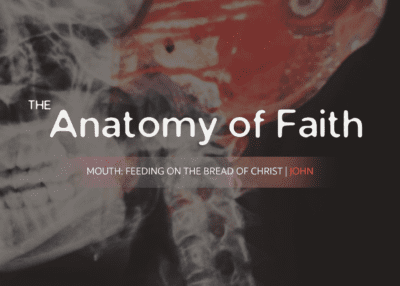Education and learning have become idols to which people increasingly bow. We live in a time of exceeding pride in human knowledge and accomplishment. The information humanity has amassed is more than any individual can fully comprehend, and it is almost ubiquitously available.
We are also surrounded by a culture where the desires and rights of the individual are considered the greatest good—where I can have whatever I want or be whatever I want, as long as it doesn’t harm others or keep them from their own desires.
In these times, it is imperative that Christians have constant reminders of what it means to trust only in the Lord God Almighty.
To Trust Is to Place Your Confidence Only in God
Trust in the Lord with all your heart, and do not lean on your own understanding. (Proverbs 3:5)
To trust in the Lord means more than believing in who he is and what he says; the word here for trust can also mean “to have confidence in.” Having confidence in something means having an assurance that leads to action. Trust in the Lord is a faith that lets us boldly serve. This confidence should infuse our whole being.
All of our knowledge, wisdom, and will should be saturated in the action-producing assurance of the Lord.
When we lean on our own understanding, we trust our own knowledge and discernment to support us through life. As Jeremiah 17:9 tells us, the problem with this is that “the heart is deceitful above all things, and desperately sick; who can understand it?” Our own sinful nature can’t be counted on.
But new hearts are given by Christ through the Holy Spirit. We cultivate God-trusting hearts by meditation on Scripture, time in prayer, and companionship with other believers. As these things tune our hearts to the Spirit living in us, we will rely less on ourselves and more on Christ, serving him in good times and bad, in sickness and in health, in the battle with sin and in the peace of his rest.
To Trust Is to Acknowledge God in Everything
In all your ways acknowledge him, and he will make straight your paths. (Proverbs 3:6)
Acknowledging God means knowing God wherever we are and whatever we are doing. This doesn’t just mean intellectual assent, but an act of perceiving his character and will in every moment of life.
If dedicate ourselves to trusting and seeking God in all circumstances, are we then to believe that life will be easy and that no trouble will beset us? We have all experienced enough of life to know that isn’t the case. Instead, what we can expect is that our journey will ultimately lead to him and we will not be shaken when trials come. Jeremiah 17 gives us clarity:
Blessed is the man who trusts in the Lord,
whose trust is the Lord.
He is like a tree planted by water,
that sends out its roots by the stream,
and does not fear when heat comes,
for its leaves remain green,
and is not anxious in the year of drought,
for it does not cease to bear fruit. (7-8)
It’s not that life no longer has difficulties, but that those difficulties are nothing to fear and that we can remain confident in God in the midst of them. He keeps us vibrant and useful to his will even when we feel languished or that the times are against us.
As we trust more in Jesus and have confidence to act on his will, we may have to turn down opportunities that seem great because Jesus has called us elsewhere, or accept callings that scare us. Acknowledging God in everything means that we remember that no circumstances come to us outside of the Father’s will. Knowing this will give us strength even through difficulties, pains, and fears, because we know that God will never leave our side.
To Trust Is to Fear the Lord
Be not wise in your own eyes; fear the Lord, and turn away from evil. (Proverbs 3:7)
Putting trust in the wisdom of man, looking to ourselves—both individually and corporately—is futile in the extreme.
For the wisdom of this world is foolishness with God. For it is written, “He catches the wise in their own craftiness”; and again, “The Lord knows the thoughts of the wise, that they are futile.” Therefore let no one boast in men. (1 Corinthians 3:19-21)
Whatever we think we know, the Lord knows more. He is more than capable of both shaming our own supposed wisdom and using it for his greater purpose. So how can we learn to trust God’s wisdom, and not our own?
The solution to “being wise in [our] own eyes” is to stand in awe of the Lord, to live in a respectful fear of him. Being scared of God is an idea uncomfortable for some; they want God to be loving and welcoming. But to truly understand the scope of God’s love, you must understand that he is also terrifying.
His holiness, size, power, beauty, understanding, knowledge, and person are incomprehensible. His anger at sin is staggering. He is such that that Bible gives several accounts of people falling down as though dead at his mere appearance.
The cure for us being enamored by our own knowledge is in understanding how sublime and fearsome our God is. The fear of the Lord not only makes his loving-kindness that much more incredible, but also motivates us to avoid evil in all its forms. For what attraction can sin hold in the face of such a fearsome God?
To Trust Is to Receive Life from Christ
It will be healing to your flesh and refreshment to your bones. (Proverbs 3:8)
Trust in and fearful awe of the Lord revives.
The word for flesh here is only used in two other verses in the Bible. In one it means “umbilical cord,” and in the other “navel.” Therefore, the healing spoken of here has a connotation of birth, as if trust in the Lord is tantamount to a rebirth.
The writer of Proverbs then contrasts images of birth with those of death. The trust and fear of the Lord is like a drink of water to dry bones. It echoes Ezekiel chapter 37, where the word of the Lord revives a valley of dry bones. He brings them together with his word and uses them as a prophetic metaphor of how he will pour his Spirit into his people.
Regardless of the pain or hardships endured, Jesus understands them. He can use them for our good and his glory in ways we can’t comprehend. He can provide healing in unexpected ways, even when hope seems lost, because truly our hope is in him.
The Perfect Trust of Jesus Christ
Trusting in the Lord is the only path to life, and nowhere is this seen more fully than in the life and work of Christ. In his life, he trusted the Father totally, even to his death; through his work on the cross, his resurrection, and his ascension he offers us new life, pouring his Spirit into our hearts.
In a culture of misplaced trusts, broken promises, and damaged lives, only Jesus is unshakable, unchangeable, unbreakable, and worthy of all our trust. Only he trusted the Father perfectly with all his heart, making straight the path for our salvation so we too would trust him. Through him, God offers healing, wisdom, and love to the world, if we only we acknowledge him in all our ways.






